Is Your Coffee Equipment Actually Clean? (Here’s How to Tell)
Key Takeaways
- Regular cleaning of coffee equipment prevents taste alteration and maintains flavor.
- Visible signs like residue build-up indicate it’s time to clean your coffee gear.
- Using correct cleaning agents and solutions is crucial to avoid equipment damage.
- Essential tools for cleaning include soft brushes, microfiber cloths, and descaling products.
- Routine component checks and storage practices extend the life of your coffee equipment.
Maintaining a sparkling clean coffee station isn’t just about aesthetics; it significantly impacts the taste and aroma of your brew. You might think your coffee equipment is spotless, but often the hidden concerns can be overlooked. To determine if your coffee gear is genuinely clean, begin by inspecting visible build-up on surfaces and hard-to-reach areas. If cleaning coffee machines is not part of your regular routine, mineral deposits and oil residues might be lurking. Moreover, dirty cleaning coffee filters can alter the flavor profile of your coffee, leading to a less enjoyable drinking experience. Staying alert to these signs ensures that your coffee, and your enjoyment, remain at their prime.
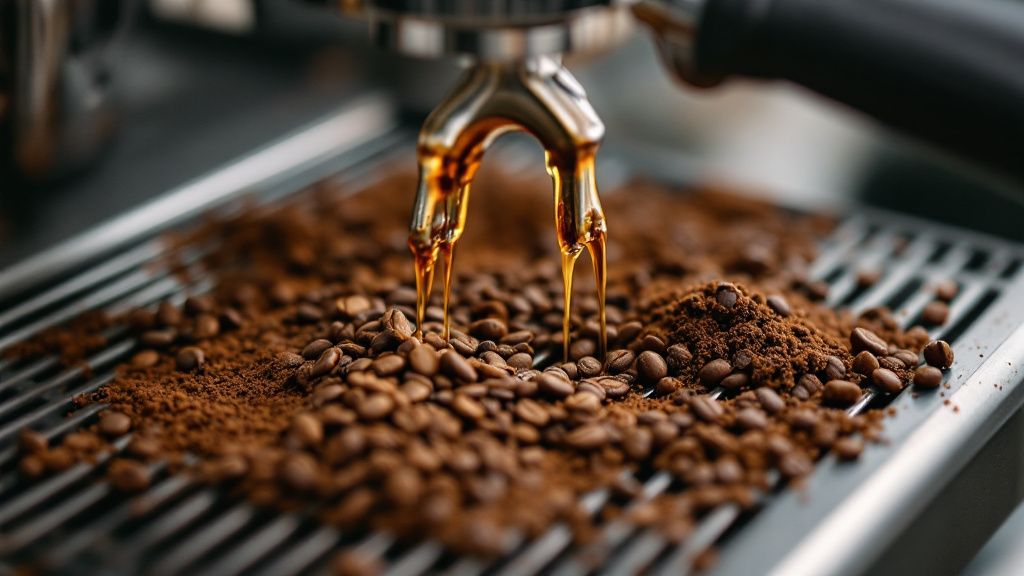
Signs Your Coffee Equipment Needs Cleaning
Recognizing the signs that your coffee equipment needs cleaning is essential to maintaining a delightful coffee experience. A change in taste is often the first red flag. If your coffee starts tasting bitter or sour, it may be time to inspect your machine. These flavors suggest that residues or mineral deposits could be affecting your brew. Additionally, take note of any strange odors emanating from your equipment, as this is another indication of grime accumulation.
A visible layer of film or substance on the coffee pot or carafe is another noticeable sign your equipment needs a thorough cleaning. If you see an oily sheen or find that water spots are not disappearing after wiping, it’s time to take action. Your mindset about cleaning coffee machines should shift from an occasional task to a regular ritual, ensuring consistent quality in every cup.
Changes in the operation of your coffee maker also serve as a crucial indicator. If your machine begins to brew more slowly, it might be struggling with internal blockages. Regular maintenance, including cleaning coffee filters, can prevent clogging caused by leftover grounds or oils. Keeping an eye on these operational signs helps extend the life of your beloved coffee maker.
Staying proactive with equipment care not only enhances flavor but ensures every cup embodies the perfect balance you’ve come to savor. Regularly scheduled cleanings safeguard your investment, allowing your machine to function efficiently and consistently over time.
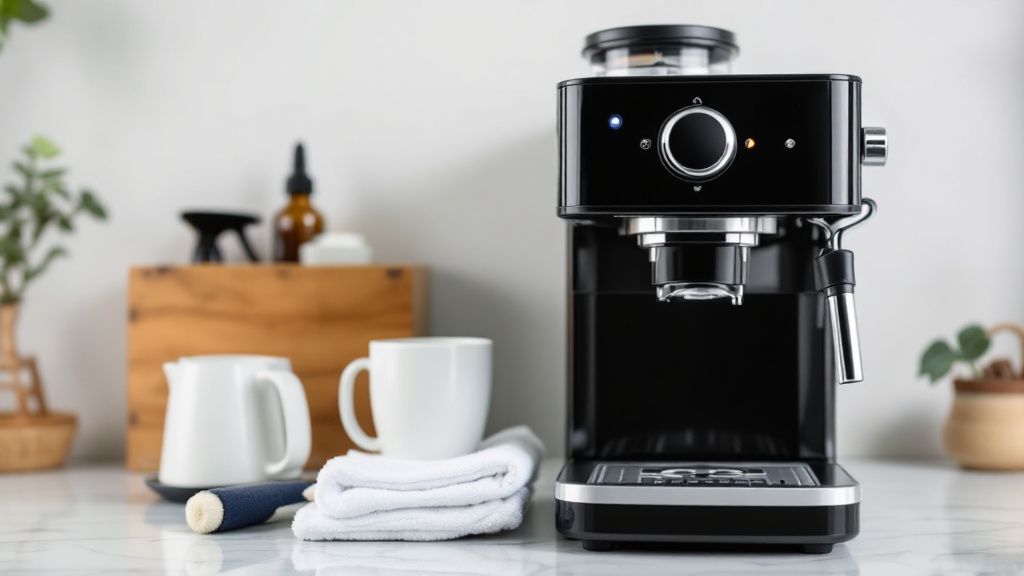
How to Effectively Clean Your Coffee Equipment
To ensure your coffee equipment is as clean as possible, start with the basics: disassemble removable parts and wash them thoroughly with warm soapy water. Paying special attention to cleaning coffee filters can prevent leftover oils from affecting flavor. The carafe, reservoir, and lids should all receive equal treatment, removing any residue that compromises your brew's quality. Keeping a regular routine will help prevent build-up and maintain peak performance.
Descale your coffee maker with a vinegar solution at least once a month to effectively remove mineral deposits. Run a full cycle, followed by a few cycles of fresh water to rinse. This process is particularly crucial if you have hard water. The practice of cleaning coffee machines regularly can significantly improve your coffee’s taste, hinting at the necessity for consistent upkeep.
The current trend in coffee maintenance shows increasing awareness and dedication to equipment care among enthusiasts. This growing pattern underscores the importance of quality maintenance. By following updated cleaning practices, you ensure not only a clean machine but also a superior coffee experience every time. Regular care helps sustain your equipment's longevity and maintains the flavors pivotal to your coffee journey.
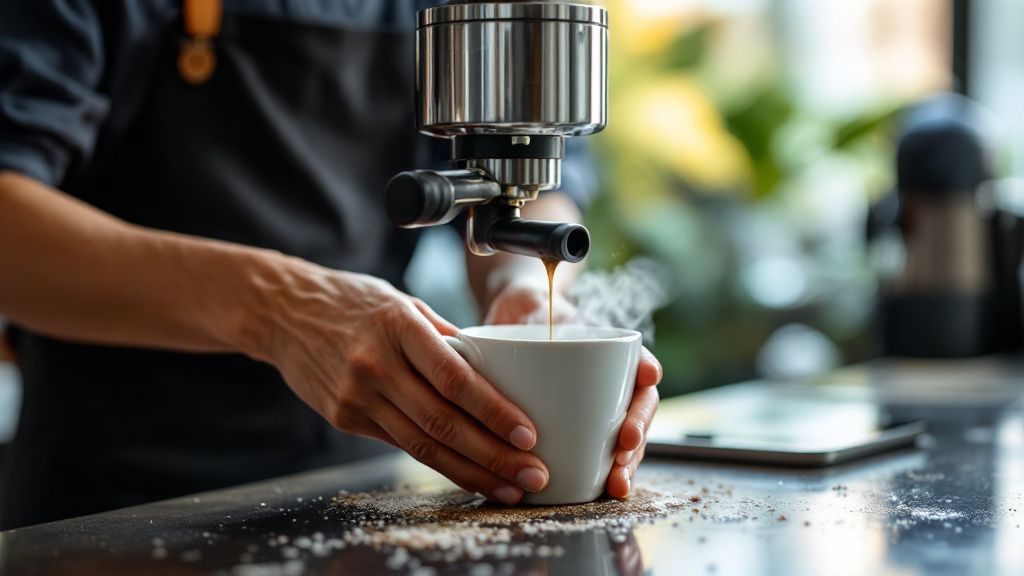
Common Mistakes When Cleaning Coffee Gear
When it comes to maintaining your coffee equipment, certain mistakes can compromise both cleanliness and coffee flavor. One common error is neglecting to regularly clean all parts, particularly those hidden from view. This oversight allows oils and residues to accumulate, impacting the taste and functionality of your machine. Ensuring that each component, such as cleaning coffee filters, receives attention can greatly improve your brewing experience.
Another mistake involves using the wrong cleaning agents which can damage your equipment or leave a harmful residue. Abrasive detergents and scouring pads may seem effective but can scratch surfaces and lead to early wear and tear. Stick to gentle solutions specifically designed for cleaning coffee machines to preserve their integrity and longevity.
One of the most frequently asked questions about coffee maintenance is whether frequent descaling is necessary. The answer is a resounding yes, especially if your water supply is mineral-rich. Regular descaling helps to prevent blockages and ensure your coffee maker operates efficiently. By addressing these common mistakes, you can extend the life of your coffee gear and enjoy consistently delicious brew.
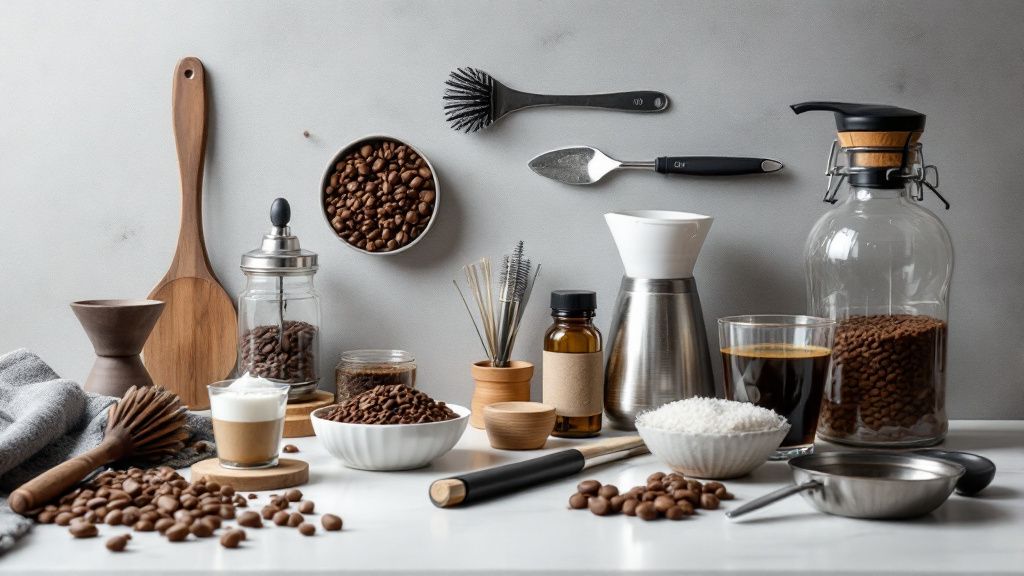
Tools and Products for Cleaning Coffee Equipment
Equipping yourself with the right tools and products is key to keeping your coffee equipment spotlessly clean. Brushes with soft bristles are ideal for scrubbing out carafes and removing grime from intricate parts without scratching them. A microfiber cloth also plays a crucial role in wiping surfaces to ensure no streaks or spots remain after cleaning coffee machines.
For effective maintenance, descaling solutions are vital to remove mineral deposits. Available in liquid or tablet form, these solutions are specifically designed to dissolve build-up that may compromise machine performance. A popular choice among coffee aficionados includes commercial products such as Urnex, which are formulated to be safe and powerful. Regular use ensures your machine functions at peak efficiency.
On one hand, some people prefer using commercial products due to their convenience and effectiveness, while on the other hand, others advocate for DIY methods like vinegar and baking soda. Though household alternatives are cost-effective, they may not always address deeper cleaning needs, particularly in industrial-grade equipment. Choosing between these perspectives depends on individual preferences and specific machine requirements, but both can play a part in a comprehensive cleaning routine.
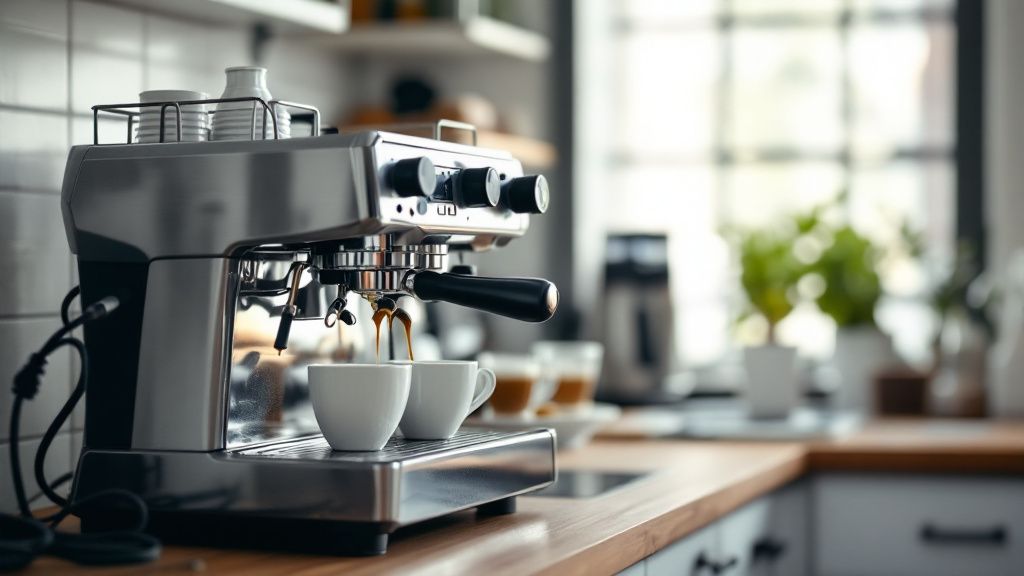
Maintaining Your Coffee Equipment Beyond Cleaning
Regular maintenance of your coffee equipment goes beyond mere cleaning; it involves proactive measures to ensure long-term functionality and quality. Routine inspections of machine components like gaskets and seals can prevent leaks and maintain pressure levels. Replacing worn parts promptly will save you from larger mechanical issues down the line, allowing your coffee maker to perform flawlessly with every brew.
Proper storage of your equipment is equally important in extending its lifespan. Items like coffee filters should be kept in a dry, sealed environment to prevent them from becoming musty or ineffective. Protecting your machine from moisture and dust when not in use can help avoid unnecessary wear and keep it in prime condition.
In the next few years, maintaining coffee equipment is likely to become increasingly reliant on smart technology. Innovations such as self-cleaning mechanisms and sensors that monitor component health are expected to rise, making upkeep more efficient. While these advancements may transform maintenance routines, the basic principles of care will always remain crucial in ensuring top-notch coffee quality and equipment longevity. These practices not only enhance performance but also secure a consistently satisfying coffee experience.
Frequently Asked Questions
How often should I clean my coffee maker?
Clean your coffee maker after every use and perform a deep clean and descaling at least once a month for best results.
Can I use vinegar to clean my coffee machine?
Yes, vinegar is an effective natural cleaning agent for descaling and removing mineral build-up in coffee machines.
Is it necessary to clean my coffee filters?
Yes, regularly cleaning coffee filters ensures no oil or residue affects the taste of your coffee.
What tools are essential for cleaning coffee equipment?
Soft brushes, microfiber cloths, and descaling solutions are essential for effective cleaning.
Can dirty equipment affect my coffee’s flavor?
Yes, residues and oils left on unclean equipment can alter the taste and aroma of your coffee.
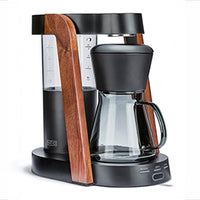 Ratio Eight S2
Ratio Eight S2
 Ratio Eight Original
Ratio Eight Original
 Ratio Six
Ratio Six
 Ratio Four
Ratio Four
 Compare Machines
Compare Machines






